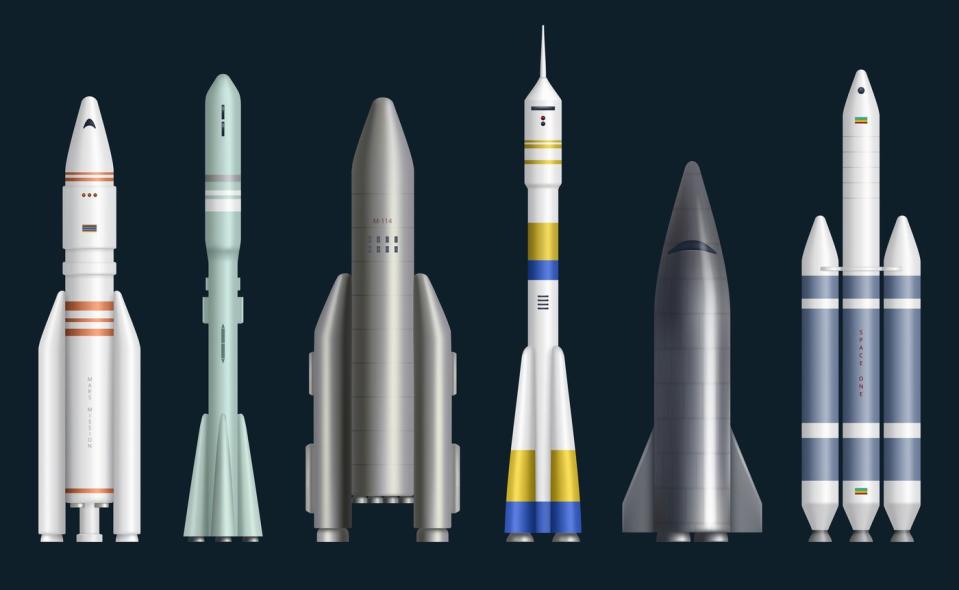America’s space industry was supposed to undergo a big change in 2023. As multiple news outlets reported at the time, the United Launch Alliance (ULA) joint venture between Boeing (NYSE: BA) and Lockheed Martin (NYSE: LMT) was up for sale, with a deal likely to happen before the end of the year.
It didn’t happen.
No matter, said the pundits. As 2023 flipped over to 2024, ULA was still for sale. Up until the arrival of SpaceX, after all, ULA was the nation’s biggest launcher of rockets carrying NASA and national security satellites. Even after SpaceX’s arrival, it was still No. 2. (Well, until Rocket Lab, it was.) Surely someone would happily pay the $2 billion or $3 billion it would take to buy ULA in 2024?
Except, 2024 is now three-quarters over, and so far at least, no one has done so.

ULA looks incredibly cheap, so why is no one buying it?
And yet, as Reuters reported last month, ULA is still up for sale. And the sales price is still reported to be in the neighborhood of $2 billion to $3 billion.
That’s probably a bargain price. As I explained back in 2023, ULA generated $1.3 billion in sales in 2022, before a transition in launch vehicles caused a slump in launch rate in 2023. As 2024 rolls along, though, launch cadence is already increasing again. With four launches in the bag so far, ULA has already put more rockets in orbit in 2024 than it did in all of 2023. Plus, a big order book populated by launches for Amazon‘s Project Kuiper mean ULA’s launch rate (and revenue) are only going up.
It shouldn’t be too long before ULA is raking in revenue at its usual rate, or better. At the usual valuation for space stocks of 3 or 4 times annual sales, that implies ULA should be worth $4 billion to $5 billion.
In any logical world, that should mean that someone will step up to the plate and buy ULA eventually.
Wanted: A buyer for ULA
And here’s the thing: Reuters thinks someone might be looking to buy ULA. Curiously, though, the company Reuters believes is now in talks to bid for ULA is a company no one even thought was in the running back when this sales process began: Sierra Space.
You remember Sierra Space. It’s the subsidiary of private defense company Sierra Nevada Corporation. It’s the company I described as “a $5 billion space unicorn” back in 2023, and a potential IPO candidate. And according to Reuters, it’s the leading contender to acquire ULA from Boeing and Lockheed, as other bidders such as Blue Origin and Rocket Lab step to the sidelines. As the news agency notes, both Blue Origin and Rocket Lab (and several others) had expressed interest in buying ULA in the past, but none of those negotiations led to a deal.
As for whether this new negotiation will succeed where others failed, though, that remains very much unclear. Asked to comment on the report, Sierra Space, Boeing, and Lockheed Martin all declined, or failed to respond.
Will Sierra Space buy United Launch Alliance?
Ordinarily, that wouldn’t mean much. Refusing to comment on a pending acquisition before ultimately going ahead and making that acquisition is standard operating procedure for big corporations. (See the recent sale of Dish to DirecTV for one very recent example.) But in this particular instance, it’s not the only reason to be skeptical that any talks will actually result in a deal.
Unless and until it conducts an IPO, Sierra Space is probably going to be strapped for cash, and unable to make a big bid to acquire ULA — certainly not as big a bid as billionaire-backed Blue Origin could manage. Indeed, as recently as late 2023, Sierra Space was reported to be laying off workers to conserve cash. Meanwhile, its available cash is probably needed for the multiple space projects it’s already involved in, which include developing modules for a proposed private space station, building missile warning satellites for the Pentagon, and getting its Dream Chaser spaceplane ready for a (much delayed) first flight in 2025.
Granted, I could be wrong about this. Indeed, I hope I am wrong, because if Sierra Space were to first buy ULA and then IPO the combined company, for example, then this would give space investors like me exactly what we’re looking for: an opportunity to invest in a company the size and capability of SpaceX, that’s also publicly traded.
Such a scenario could still happen eventually. I just don’t think Sierra Space is the company that will make it happen.
Should you invest $1,000 in Boeing right now?
Before you buy stock in Boeing, consider this:
The Motley Fool Stock Advisor analyst team just identified what they believe are the 10 best stocks for investors to buy now… and Boeing wasn’t one of them. The 10 stocks that made the cut could produce monster returns in the coming years.
Consider when Nvidia made this list on April 15, 2005… if you invested $1,000 at the time of our recommendation, you’d have $765,523!*
Stock Advisor provides investors with an easy-to-follow blueprint for success, including guidance on building a portfolio, regular updates from analysts, and two new stock picks each month. The Stock Advisor service has more than quadrupled the return of S&P 500 since 2002*.
*Stock Advisor returns as of September 30, 2024
John Mackey, former CEO of Whole Foods Market, an Amazon subsidiary, is a member of The Motley Fool’s board of directors. Rich Smith has positions in Rocket Lab USA. The Motley Fool has positions in and recommends Amazon. The Motley Fool recommends Lockheed Martin and Rocket Lab USA. The Motley Fool has a disclosure policy.
Look Who’s Supposedly Buying Boeing and Lockheed Martin’s Space Business Now! was originally published by The Motley Fool
Source Agencies


